
Avian intelligence is a captivating field that deepens our understanding of animal cognition, challenging long-held beliefs about the intellectual capabilities of birds. The Australian magpie (Gymnorhina tibicen) is at the forefront of this discussion, now recognized for its remarkable cognitive skills. These birds exhibit problem-solving abilities and social intelligence that rival some primates.
Evolutionary pressures and social dynamics have shaped the magpie’s intelligence, making it a fascinating subject of study. This article will explore the multifaceted intelligence of Australian magpies, from their complex social structures to their problem-solving prowess and communication skills. We will also examine how their intelligence compares to other birds and the implications for conservation.
The Social Genius of Australian Magpies
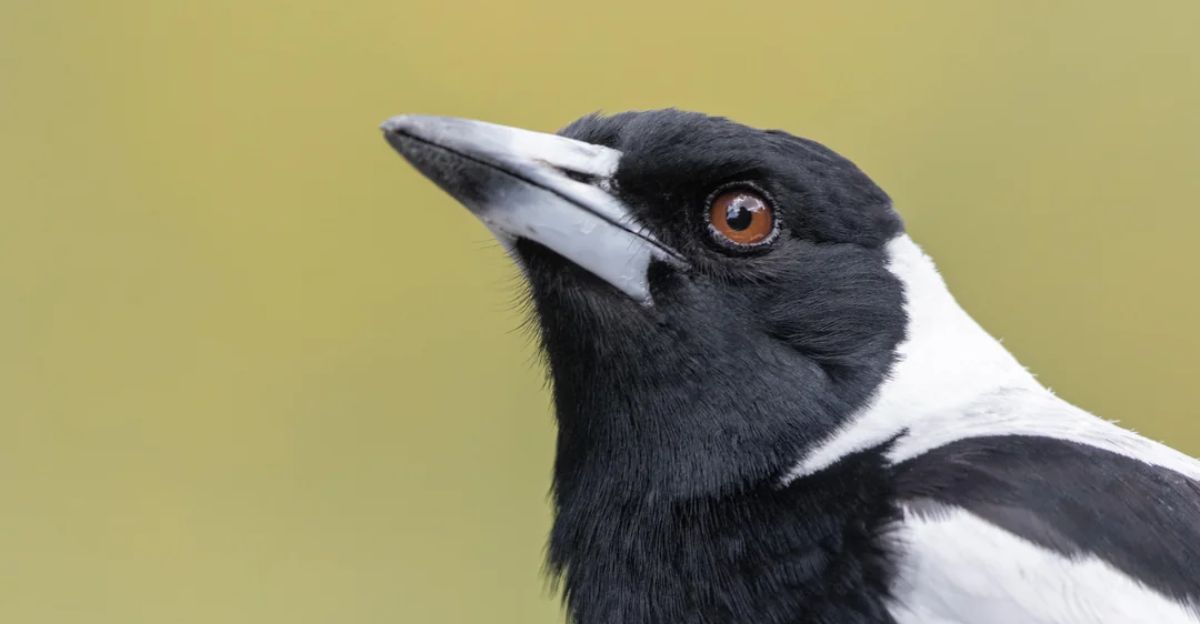
Australian magpies live in complex social structures, typically forming cooperative family groups that persist year-round. These groups engage in cooperative behaviors, enhancing their survival and adaptability. Magpies can recognize individual human faces, allowing them to differentiate between threatening and non-threatening individuals.
This skill demonstrates their advanced cognitive abilities and social awareness. A recent study revealed that magpies in larger groups tend to perform better in associative learning tasks, highlighting the role of social dynamics in cognitive development. The magpies’ social environment significantly impacts their intelligence and problem-solving abilities.
Problem-Solving Prowess

Australian magpies exhibit notable problem-solving skills, often demonstrated through cooperative puzzle-solving tasks. These birds can solve new challenges, showcasing their adaptability and cognitive flexibility. Researchers have observed that individual magpies receiving aggression demonstrated improved performance, suggesting necessity drives innovation.
This indicates that when magpies cannot monopolize resources through aggression, they invest more time in problem-solving. These skills enable them to thrive in various environments, adapting to changing conditions and exploiting new resources.
Tool Use Among Magpies
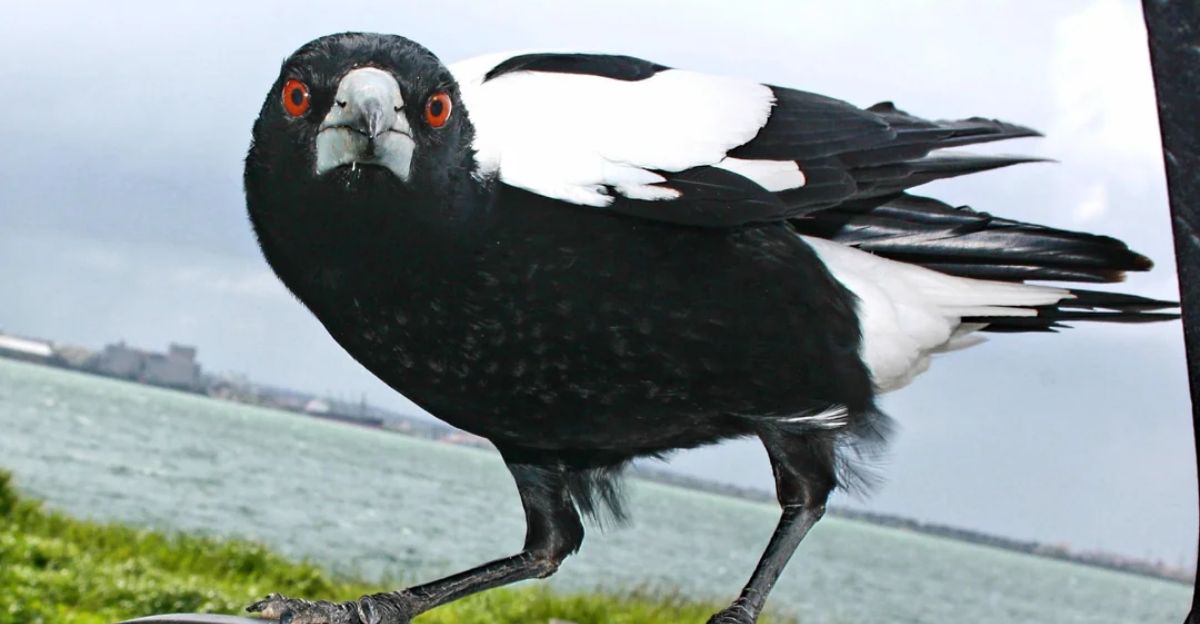
Tool use is a significant indicator of intelligence in the animal kingdom, observed in species ranging from primates to birds. While there is limited evidence of regular tool use among Australian magpies, their cognitive abilities suggest a potential for it.
Magpies have demonstrated innovative behaviors, such as removing tracking devices, indicating advanced problem-solving skills. Further research may reveal tool use among these birds, expanding our understanding of their cognitive capabilities. Observing and documenting such behaviors in the wild remains an ongoing interest.
Communication Skills
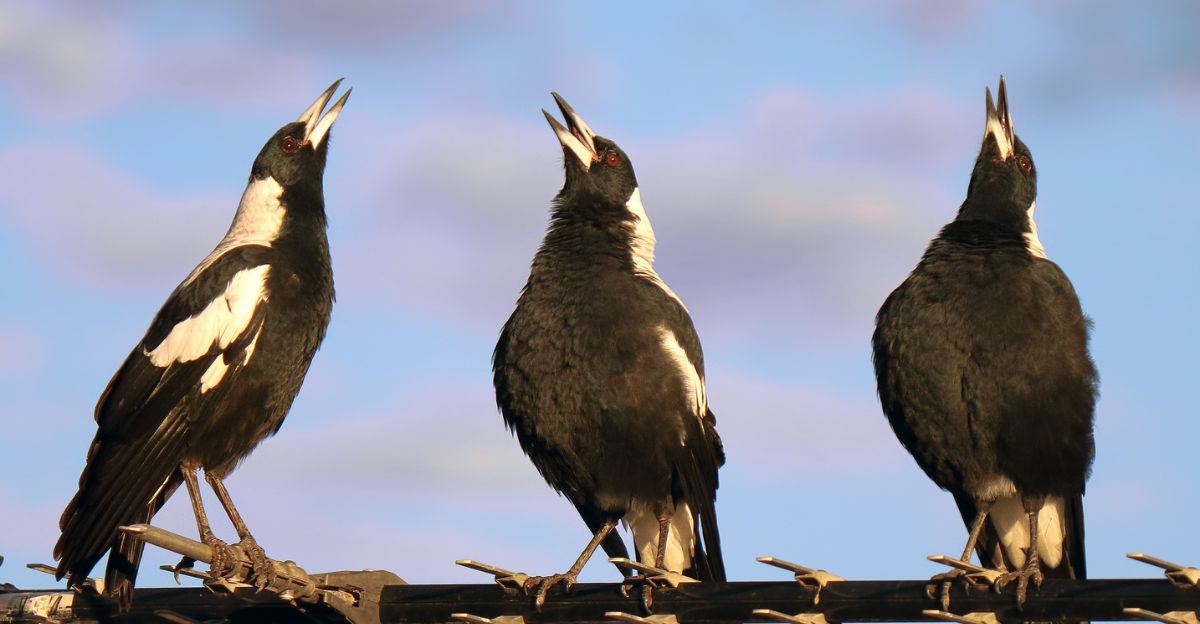
Australian magpies communicate through various methods, including vocalizations, body language, and facial expressions. Their complex vocal repertoire includes distinct calls and signals facilitating social interactions and cooperation. These communication skills are vital for coordinating group activities, sharing information about food sources, and warning against potential threats.
For example, specific calls may signal the presence of predators, prompting coordinated defense strategies within the group. By understanding these communication methods, researchers gain insights into the magpies’ social dynamics and cognitive processes.
Cognitive Development and Learning
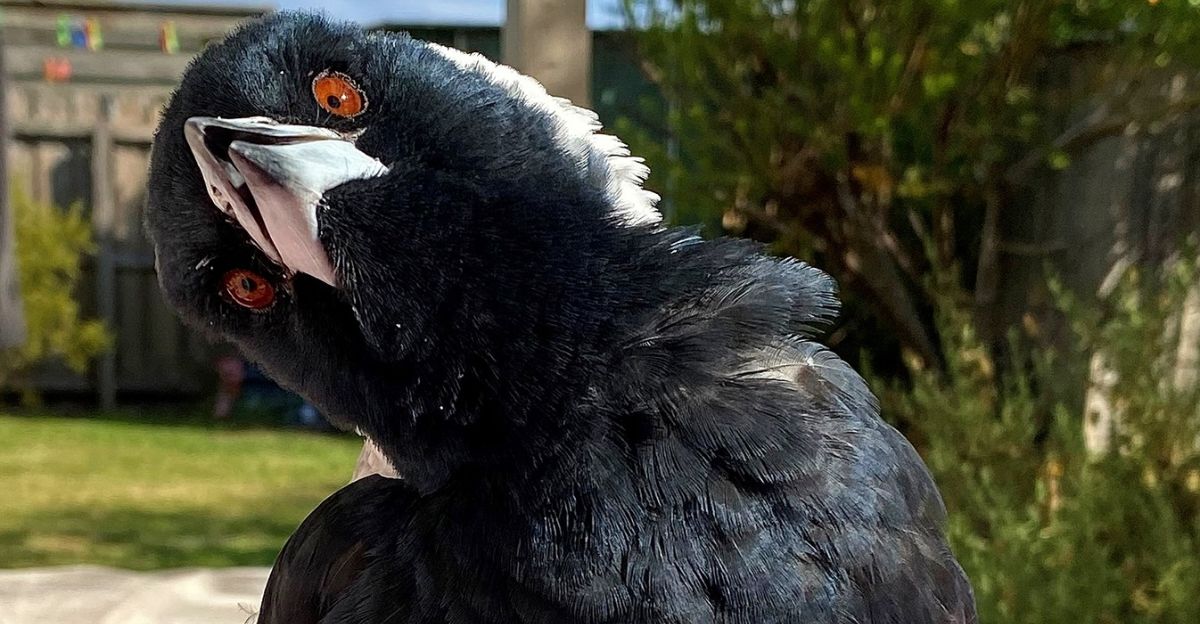
Young Australian magpies learn from older, more experienced birds through social learning, significantly influencing their cognitive development. This process involves observing and imitating behaviors, allowing younger birds to acquire essential skills and knowledge. Play and exploration are crucial in developing problem-solving skills and adaptability.
A study on Western Australian magpies revealed that fledglings raised in larger groups demonstrated superior performance in learning tasks. This highlights the importance of the social environment in fostering cognitive growth and development in these birds.
Comparative Avian Intelligence
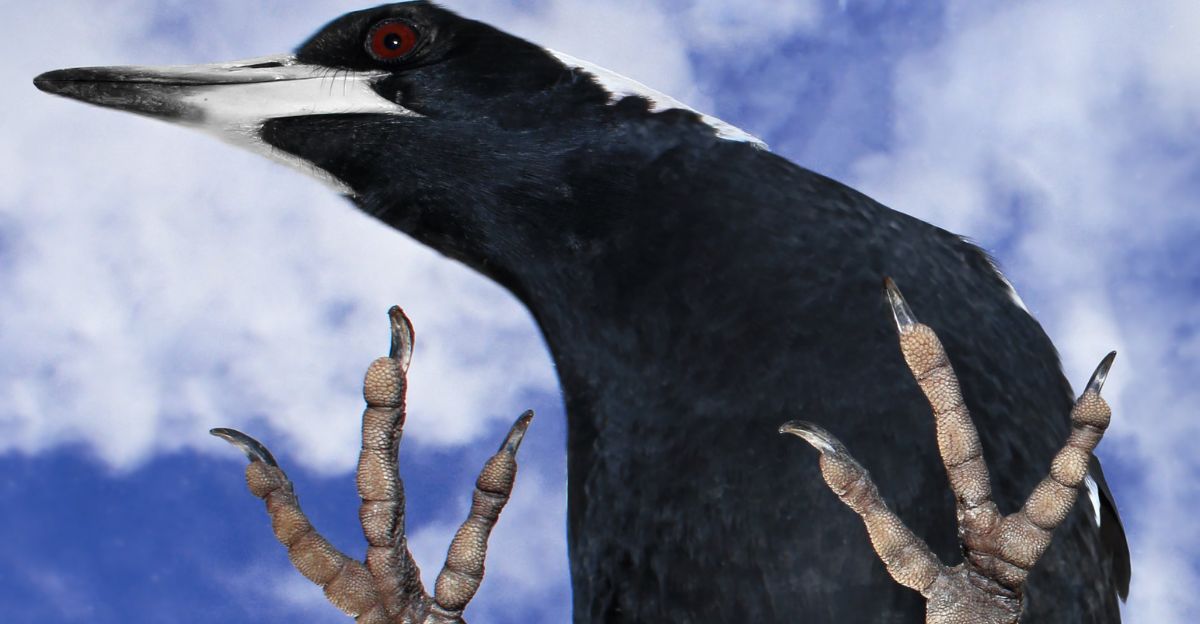
Australian magpies stand out among intelligent birds, rivaling species like crows, ravens, and parrots in cognitive abilities. While these species share common traits such as problem-solving skills and social complexity, magpies exhibit unique aspects of intelligence.
Scientists measure avian intelligence through various methods, including problem-solving tasks, memory tests, and social interaction experiments. Magpies’ ability to recognize human faces and cooperate in complex social structures sets them apart. These distinctions contribute to a broader understanding of the evolution and diversity of intelligence in the avian world.
Evolutionary and Ecological Context
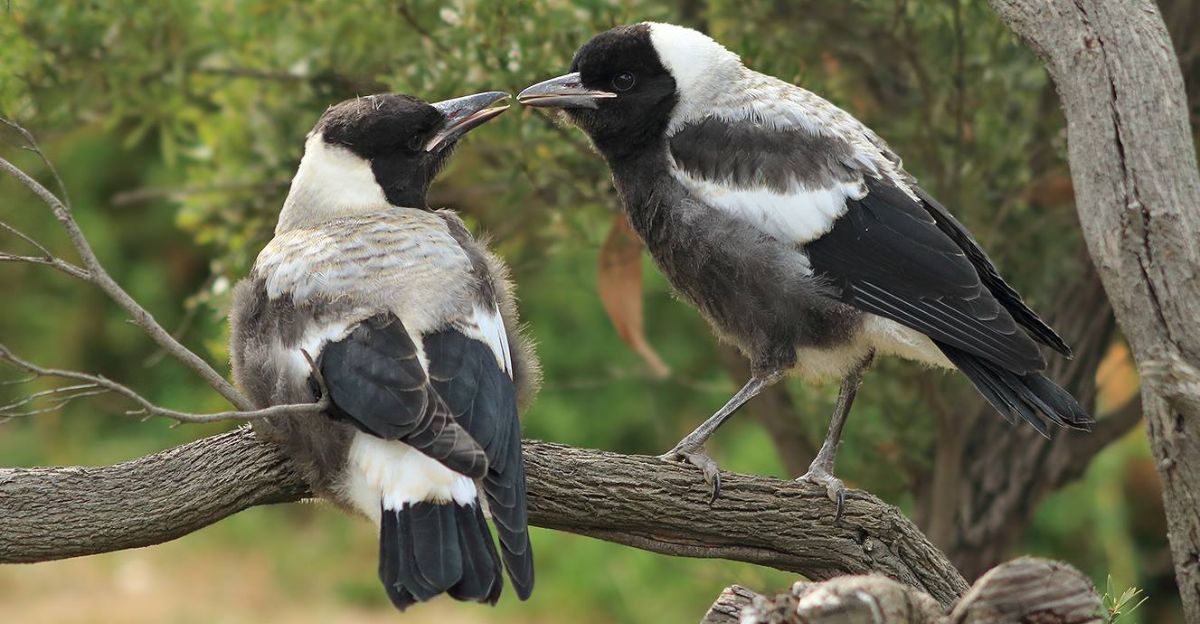
The intelligence of Australian magpies has likely evolved due to specific environmental pressures and social dynamics. Their cognitive abilities enable them to adapt to various environments and exploit diverse food sources. For example, magpies have successfully adapted to urban environments, learning to navigate human landscapes and utilize human-provided food sources.
Urbanization and human activities can impact their cognitive abilities and behavior, leading to challenges and opportunities. Understanding these evolutionary and ecological factors provides insights into the development and maintenance of intelligence in magpies.
Conservation Implications
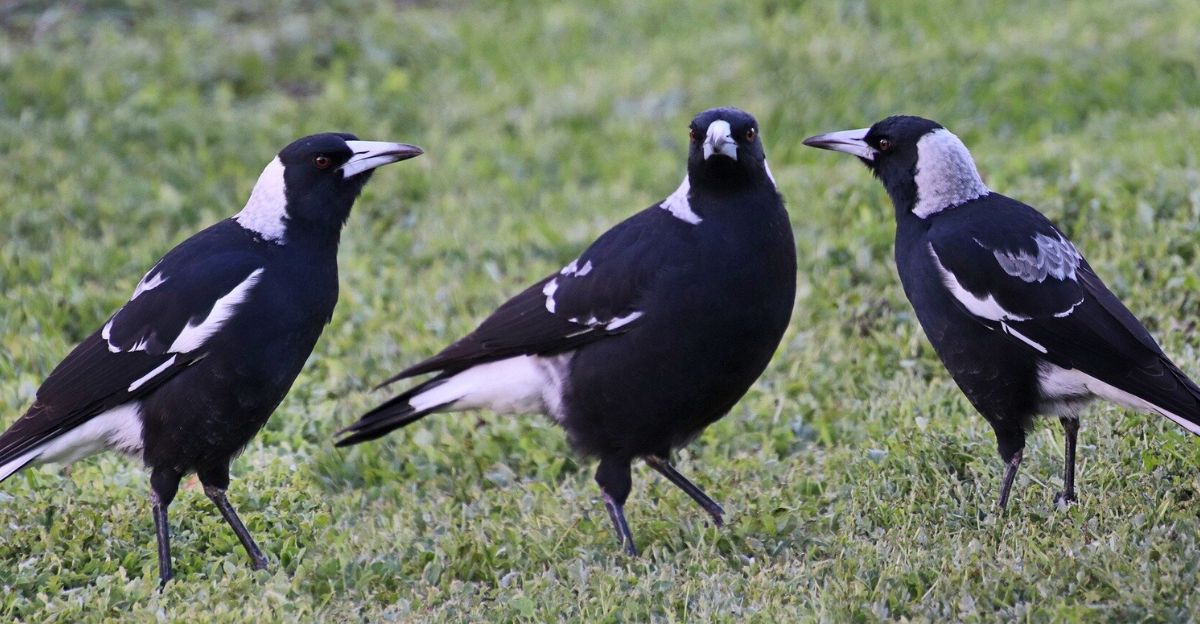
The Australian magpie is not currently threatened; understanding their intelligence and behavior is crucial for practical conservation efforts. Habitat loss and human persecution remain potential threats to local populations. Recognizing their cognitive abilities can inform strategies to promote coexistence between humans and magpies.
Protecting their natural habitats and mitigating human-wildlife conflict is essential for long-term survival. Conservation efforts should consider these intelligent birds’ social and cognitive needs, fostering a harmonious relationship between humans and magpies.
Exceptional Intelligence
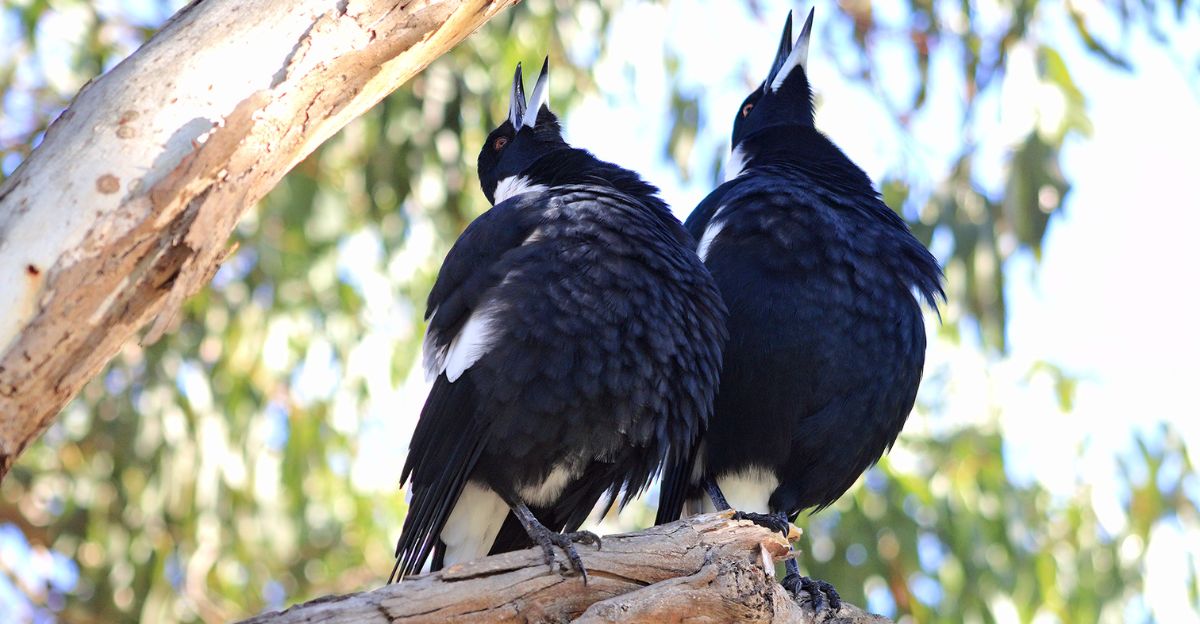
Australian magpies exhibit exceptional intelligence and cognitive abilities, earning recognition as one of the world’s most intelligent birds. Their complex social structures, problem-solving skills, and communication methods highlight the importance of recognizing avian intelligence.
Appreciating the cognitive capabilities of birds enriches our understanding of the natural world and challenges traditional views of animal intelligence. Further research into magpie intelligence can provide valuable insights into the evolution of cognition and behavior. Support conservation efforts to protect Australian magpies and their habitats, ensuring these intelligent birds continue to thrive.
Explore more of our trending stories and hit Follow to keep them coming to your feed!

Don’t miss out on more stories like this! Hit the Follow button at the top of this article to stay updated with the latest news. Share your thoughts in the comments—we’d love to hear from you!







